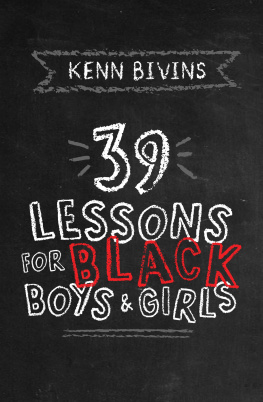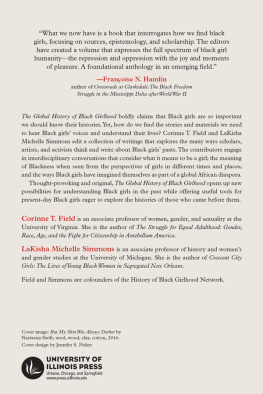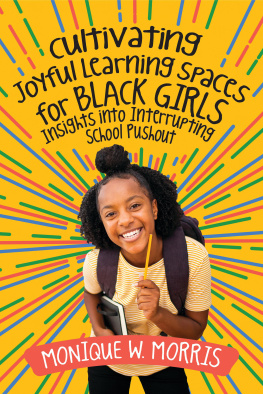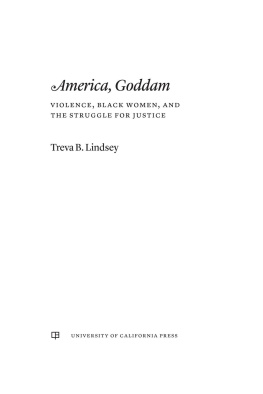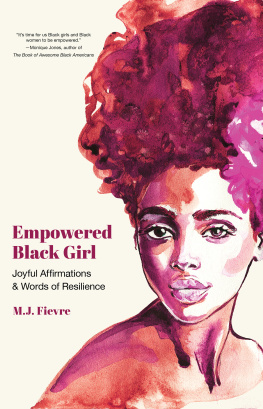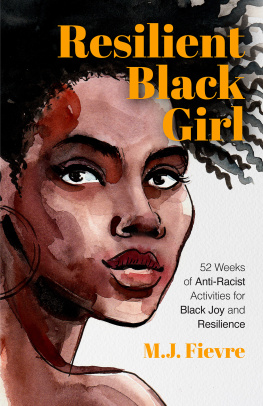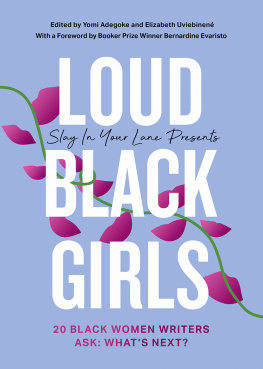
Black Girlhood, Punishment, and Resistance
Black Girlhood, Punishment, and Resistance: Reimagining Justice for Black Girls in Virginia provides a historical comprehensive examination of racialized, classed, and gendered punishment of Black girls in Virginia during the early twentieth century. It looks at the ways in which the court system punished Black girls based upon societal accepted norms of punishment, hinged on a notion that they were to be viewed and treated as adults within the criminal legal system. Further, the book explores the role of Black Club women and girls as agents of resistance against injustice by shaping a social justice framework and praxis for Black girls and by examining the establishment of the Virginia Industrial School for Colored Girls. This school was established by the Virginia State Federation of Colored Womens Clubs and its first President, Janie Porter Barrett.
This book advances contemporary criminological understanding of punishment by locating the historical origins of an environment normalizing unequal justice. It draws from a specific focus on Janie Porter Barrett and the Virginia Industrial School for Colored Girls; a groundbreaking court case of the first female to be executed in Virginia; historical newspapers; and Black Womens Club archives to highlight the complexities of Black girls experiences within the criminal justice system and spaces created to promote social justice for these girls. The historical approach unearths the justice systems role in crafting the pervasive devaluation of Black girlhood through racialized, gendered, and economic-based punishment. Second, it offers insight into the ways in which, historically, Black women have contributed to what the book conceptualizes as resistance criminology, offering policy implications for transformative social and legal justice for Black girls and girls of color impacted by violence and punishment. Finally, it offers a lens to explore Black girl resistance strategies, through the lens of the Black Girlhood Justice framework.
Black Girlhood, Punishment, and Resistance uses a historical intersectionality framework to provide a comprehensive overview of cultural, socioeconomic, and legal infrastructures as they relate to the punishment of Black girls. The research illustrates how the presumption of guilt of Black people shaped the ways that punishment and the creation of deviant Black female identities were legally sanctioned. It is essential reading for academics and students researching and studying crime, criminal justice, theoretical criminology, womens studies, Black girlhood studies, history, gender, race, and socioeconomic class. It is also intended for social justice organizations, community leaders, and activists engaged in promoting social and legal justice for the youth.
Nishaun T. Battle, PhD was born and raised in Southern California and earned her Doctorate in Sociology with concentrations in Criminology and Social Inequality and a certificate in Womens Studies at Howard University. She is an Assistant Professor of Criminal Justice at Virginia State University, in Petersburg, Virginia. She is a scholarartist activist whose research explores lived and historical experiences of resistance by Black girls, community activism, and State violence.
Intersectional Criminology
Series Editor: Hillary Potter
Black Girlhood, Punishment, and Resistance
Reimagining Justice for Black Girls in Virginia
Nishaun T. Battle
For more information about this series, please visit:
www.routledge.com/Intersectional-Criminology/book-series/INTCRIM
First published 2020
by Routledge
52 Vanderbilt Avenue, New York, NY 10017
and by Routledge
2 Park Square, Milton Park, Abingdon, Oxon, OX14 4RN
Routledge is an imprint of the Taylor & Francis Group, an informa business
2020 Taylor & Francis
The right of Nishaun T. Battle to be identified as author of this work has been asserted by her in accordance with sections 77 and 78 of the Copyright, Designs and Patents Act 1988.
All rights reserved. No part of this book may be reprinted or reproduced or utilised in any form or by any electronic, mechanical, or other means, now known or hereafter invented, including photocopying and recording, or in any information storage or retrieval system, without permission in writing from the publishers.
Trademark notice: Product or corporate names may be trademarks or registered trademarks, and are used only for identification and explanation without intent to infringe.
Library of Congress Cataloging-in-Publication Data
Names: Battle, Nishaun T., author.
Title: Black girlhood, punishment, and resistance : reimagining justice for black girls in Virginia / Nishaun T. Battle.
Description: New York, NY : Routledge, 2019. |
Series: Intersectional criminology | Includes bibliographical references. |
Identifiers: LCCN 2019027794 (print) | LCCN 2019027795 (ebook)
Subjects: LCSH: African American juvenile delinquentsVirginiaHistory20th century. | Female juvenile delinquentsVirginiaHistory20th century. | Juvenile correctionsVirginiaHistory20th century. | Discrimination in criminal justice administrationVirginiaHistory20th century. | African American girlsVirginiaSocial conditions20th century.
Classification: LCC HV9105.V7 B38 2019 (print) | LCC HV9105.
V7 (ebook) | DDC 364.360835/209755dc23
LC record available at https://lccn.loc.gov/2019027794
LC ebook record available at https://lccn.loc.gov/2019027795
ISBN: 978-1-138-28894-2 (hbk)
ISBN: 978-1-315-26756-2 (ebk)
Typeset in Times New Roman
by codeMantra
As a young girl, I always said I would write a book one day. Storytelling through short stories, poems, and daily journal entries was a daily or sometimes weekly enjoyable or not so enjoyable journey. Even though writing a book was a childhood dream, I honestly did not know exactly when this would happen. The concept of this book was originally derived from my dissertation, which examined the punishment of Black women in the South during the nineteenth century and the role of Black Club Women in addressing social injustice. However, I knew moving forward that my work should reflect my praxis, and I knew I needed to focus on the resistance of Black girls and the role they have, including Black women in creating spaces for Black girls to thrive. I wanted to illuminate the strength of Black girls whose voices are often erased in the larger social narrative and so my idea of addressing punishment and resistance slightly shifted. I attended a Black Girlhood Conference at the University of Virginia and from that conference held in 2018, I knew that my work needed to center Black girls as agents of change, along with the tenacious role of Black Club women organizers. I would like to thank Lindsey Jones, who I met at this conference, who encouraged and suggested that I explore the Colson Papers at Virginia State University and Janie Porter Barrett. Thank you so much Lindsey!
I want to thank Dr. Vernetta Young for being one of the best mentors I have ever had in my life. You have encouraged me to write from the heart, eliminate the jargon, and to illuminate the voices of those who are no longer here. Your historical work on juvenile institutions and the role of the Black Club Women movement provided the path for me to continue this work. THANK YOU! I would like to thank Dr. Hillary Potter for all of her encouragement throughout the years and being the first person to remotely suggest that my research could eventually culminate into a book. I still have that email you sent me and I want to thank you so much for the insight and mentorship you have provided me with as a graduate student and your continued support of me as a Professor.



